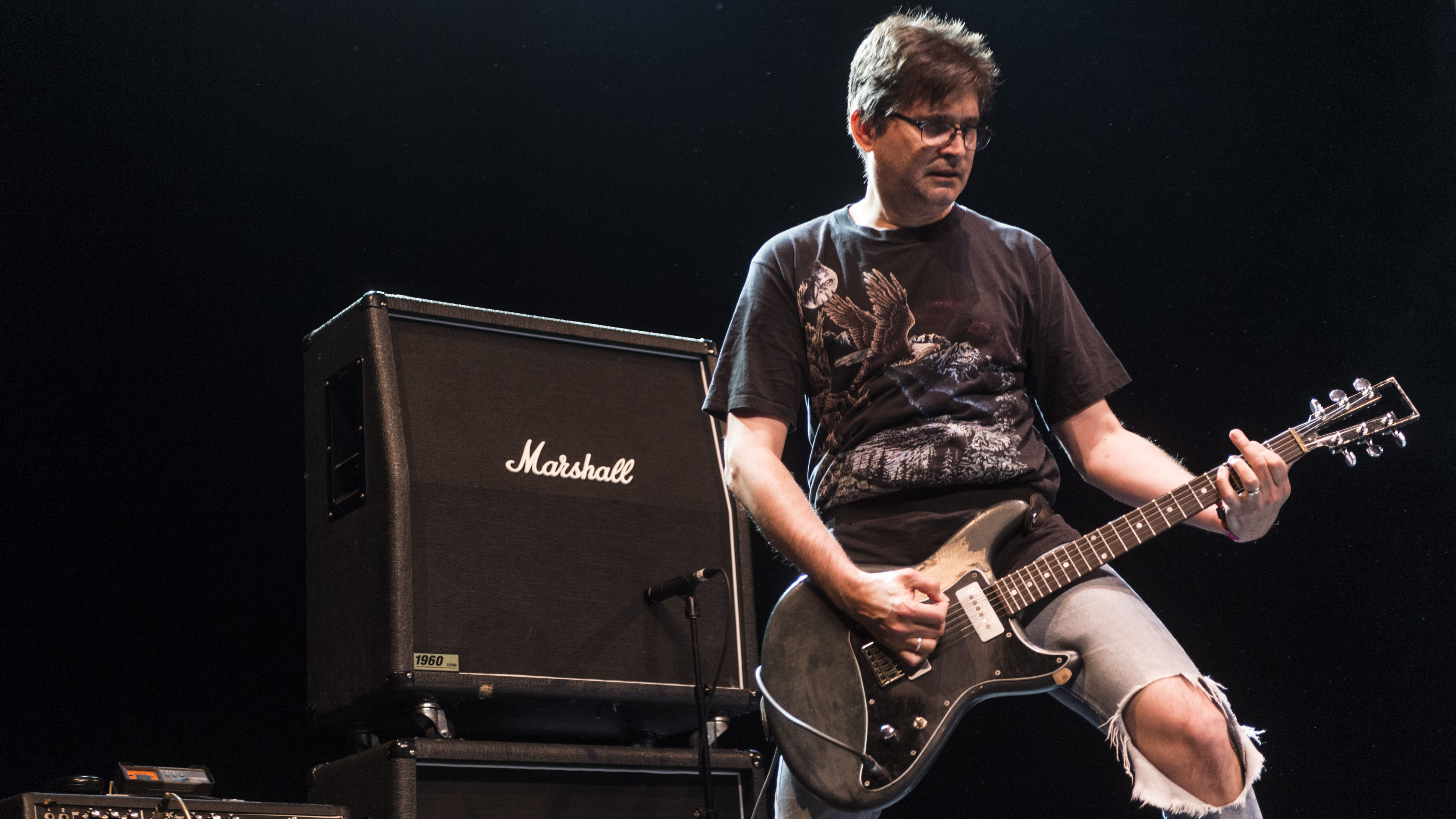Steve Albini weighs in on amp modelling and effects pedals: "I know some old school guys are like, ‘Plug the guitar straight into the amp, and if you can’t get it done with that, you’re not a real musician,’ or whatever. That’s horses***"

Want all the hottest music and gear news, reviews, deals, features and more, direct to your inbox? Sign up here.
You are now subscribed
Your newsletter sign-up was successful
Acclaimed audio engineer and producer Steve Albini has told Premier Guitar that he thinks the use of amp modelling is a "trend" to a certain extent but it's not necessarily one he's against. It's also linked to his specific thoughts on effects pedals, namely how their potential is explored creatively by players.
"The stage that we are at now, where every player in every band has a pedalboard and have this sort of a curated collection of sounds that they come up with, I actually got a preview of that in the late ’80s," Albini tells Premier Guitar in a new interview. "The first time I went to Japan, most guitarists that I worked with had a pedalboard with half a dozen pedals on it, and that’s how they would craft their sound. They could bring that anywhere and plug it into any amp and they’d be happy.
Albini views this in context with the undeniable rise he's seeing with guitarists using amp modelling.
"Something very similar is happening now in the US where a lot of people are doing demo recording at home through modelling amps or through interfaces, and rather than using an amplifier for its inherent qualities, they’re kind of defeating the amplifier by using pedals as the principal source of their sound. It’s a trend. I don’t really have an opinion about it."
It’s absolutely the case that most players in most bands now have multiple pedals that they’re using, and the songs are arranged in a way where you use this combination for this part and this combination for this part
He does elaborate more on the effects side of things – namely how some players are using multiple effects pedals in signal chains as a creative tool.
"There are some people who are more adept at it than others," notes Albini, "but it’s absolutely the case that most players in most bands now have multiple pedals that they’re using, and the songs are arranged in a way where you use this combination for this part and this combination for this part. And nothing about it seems bad to me. It’s a little more cumbersome, especially when you’re in the studio and you’re trying to track down problems. But when you see somebody who’s really put some thought and attention into it and they’re really using the pedals in an expressive way…."
Somebody in particular is Reba Myers of Code Orange – whose fifth album The Above was engineered by Albini at his Electrical Audio studios in Chicago.
Want all the hottest music and gear news, reviews, deals, features and more, direct to your inbox? Sign up here.
"I did a session with Reba Myers from Code Orange. She has this really expansive pedal setup where she’s got a main soundboard where the general tone for a given song comes from, and then she’s got a kind of an expression board, which is just all the crazy shit, and she’s constantly going back and forth," notes Albini. "She’s an example of someone who’s put a lot of thought and attention into the specifics of the pedalboard and is using it as a creative tool. I’ve seen other people where it’s kind of pro forma—like, Kiss wore funny outfits on stage, and so for a while a lot of bands felt obliged to wear funny outfits on stage.
"I know some old school guys are like, ‘Plug the guitar straight into the amp, and if you can’t get it done with that, you’re not a real musician,’ or whatever," he adds. "That’s horse shit. That’s just boomer shit. I’m not into that at all."
Read the full interview at Premier Guitar

Rob is the Reviews Editor for GuitarWorld.com and MusicRadar guitars, so spends most of his waking hours (and beyond) thinking about and trying the latest gear while making sure our reviews team is giving you thorough and honest tests of it. He's worked for guitar mags and sites as a writer and editor for nearly 20 years but still winces at the thought of restringing anything with a Floyd Rose.
